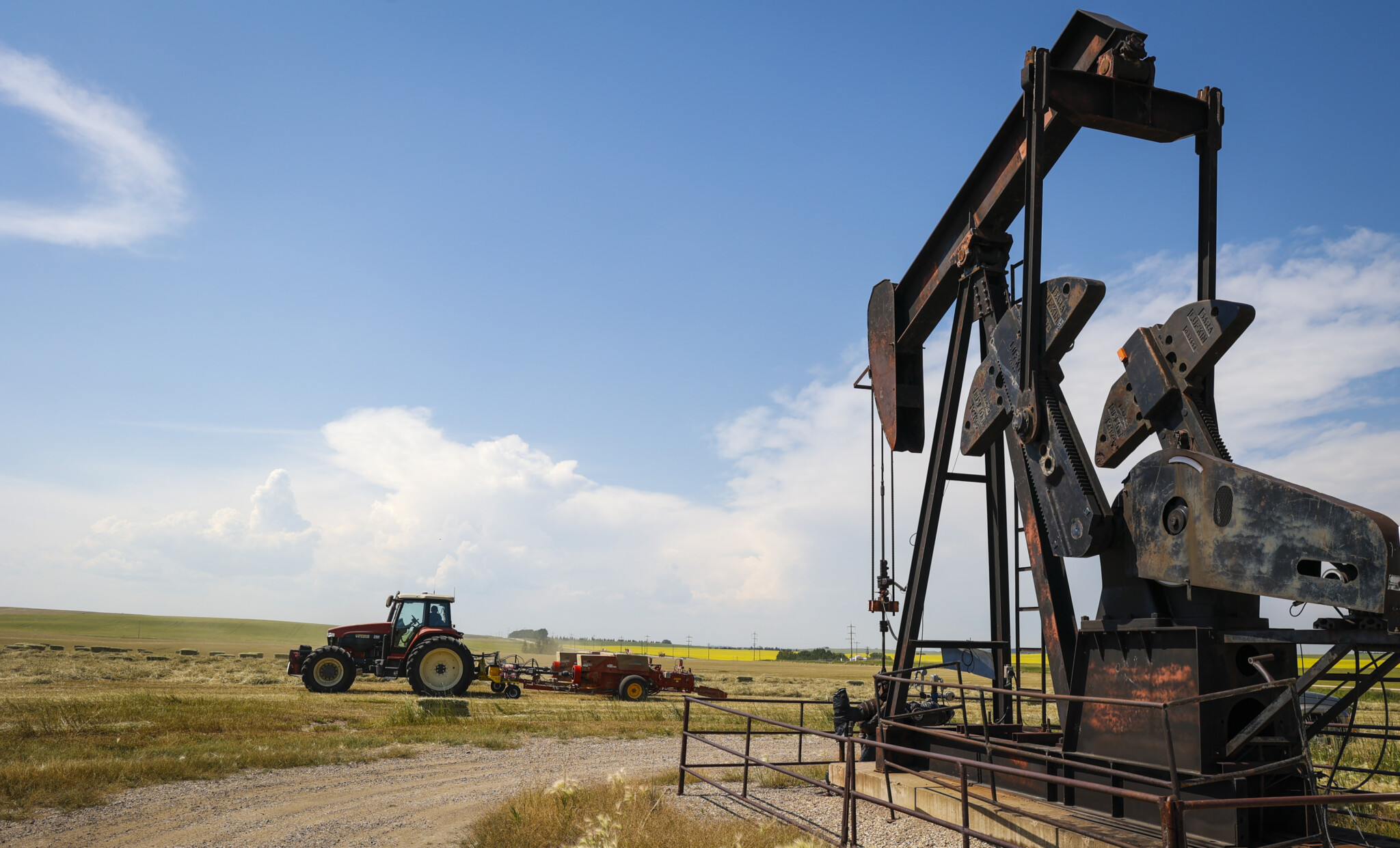From the era of the fur trade to today’s oil markets, Canada’s economy has been defined by exporting staples, a special term for natural resources. Those staples were fur in the 17th century, timber in the 19th century, and has been oil and gas since the 1970s.
The recent completion of the Trans Mountain pipeline (which as economist Jack Mintz recently noted in a Hub podcast ought to have been six years earlier) should be understood as part of Canada’s staple legacy. It’s also an opportunity to revisit two of the greatest historians that Canada has ever produced.
Harold Innis and Donald Creighton were historians of Canada’s political economy who wrote great volumes that revealed how natural resources were essential to nation-building in Canada. Today their work is mostly ignored by university departments and can even be difficult to find in used bookstores.
Innis wrote books like The Cod Fisheries: The History of an International Economy, while Creighton authored The Commercial Empire of the St. Lawrence, 1760-1850. What those titles lack in excitement was made up for by their depth, research, and in Creighton’s case, the quality of his prose.
Those two books alone still enable readers to make greater sense of the Canadian economy. Were Innis and Creighton still alive, TMX would fit neatly into their staples-centred perspectives—though the aversion among Canadian elites to the country’s natural resource economy most definitely would not.
Innis and Creighton’s conception of Canada was viewed through the lens of the country’s rich natural resource endowment. They conceived of and popularized the Staples Thesis and the Laurentian Thesis of Canadian history, respectively.
The Staple Thesis posits that the export of staples from Canada to more advanced economies decisively influenced our economic development, as well as our social and political systems.
It helped to inspire Creighton’s Laurentian Thesis, which similarly set out that Canada’s economic and national development came primarily from exploiting staple products like fur, timber, and wheat, under the leadership of colonial merchants operating on the St. Lawrence River.
As a wordsmith, Creighton was noticeably more adept than Innis, and his work is the perfect starting point for those wanting to know more about how Canada grew into the world. Reading The Commercial Empire of the St. Lawrence reveals just how unchanged Canada’s economic pillars have been since the 18th century.
In Toronto and Montreal, where finance and technology are significant, it’s tempting to imagine Canada as only a highly digitized economy, akin to Switzerland or Singapore. While there is no question that services contribute immensely to Canadian GDP, our natural resources are what has always made Canada stand out.
A stark economic difference between Canada and the United States is our greater reliance on exports, which made up a third of Canada’s GDP in 2022. By comparison, exports made up about 12 percent of American GDP in the same year.
If there is any doubt that crude oil is our modern staple, Canadian oil and gas exports were worth $123 billion in 2022. The second-most valuable export was automobiles, which were valued at just $29.4 billion.
Staples are not a hidebound industry that Canada should eschew, but a vital part of our economic and social well-being.
Innis’ assertion that staples have also helped define Canada politically is demonstrated by the polarized reactions to the TMX project, with one side celebrating it as a Canadian success story, while others deplore it as an environmental disaster.

Protesters attend a anti trans mountain pipeline rally in downtown Vancouver, Monday, December, 16, 2019. Jonathan Hayward/The Canadian Press.
Debates over the place of oil and gas in the Canadian economy have proven to be a great faultline in Canadian politics, such as how federal interference in the form of the National Energy Policy in Alberta’s oil industry drove Western alienation in the late 20th century.
At the peak of Creighton and Innis’ influence in the mid-20th century, Canadian institutions seemed to have a greater appreciation for the reality of our economy. They weren’t self-conscious or insecure about the providence of our natural resources.
Until the 1970s, the Bank of Canada still issued banknotes decorated with portrayals of commercial hunting, logging, and fishing. Maybe our currency ought to grant a place for the Trans Mountain pipeline.
The Bank of Canada projects that TMX will boost second-quarter growth in Canada by 0.25 percent at a time when the country is stuck in a growth and productivity crisis that is hurting our standard of living. For context, the entire economy of B.C. added 0.23 percentage points to Canadian GDP in 2023, while Ontario added 0.60 percentage points.
TMX will do more for our economy in the next few years than a banker, public servant, or EV lobbyist could ever hope for.
A constant feature of Creighton’s work was how the staples merchants were constantly thwarted by colonial administrators. This too remains unchanged, although the administrators are no longer appointed in London.
On average, it takes up to 20 years to approve and build mines in Ontario due to bureaucracy and red tape. In B.C., mineral exploration leaders warn that the provincial government’s confusing regulatory approach could drive members of their industry out of the province.
Canada has a tiny population given the vast size of the country. This land contains the world’s third-largest known oil reserves in the world, and one of its largest rare earth elements deposits, which are crucial to modern technologies.
Hungry markets are waiting for oil and minerals, and ramping up the export of these staples could make Canadians some of the wealthiest people in the world on a per-capita basis.
The bounty of Canada’s staples is a pillar of our prosperity. If TMX has proved anything, it is that Creighton and Innis’ work remains valid, prophetic, and more useful than ever.
Recommended for You

Ginny Roth: J.D. Vance, Pierre Poilievre, and how they slice their economic pie

Five Tweets on Western Canada’s devastating wildfires

Trevor Tombe: Canadians are paying billions in hidden taxes on new homes

Stephen Staley: Widespread deregulation is Canada’s golden ticket for economic growth












